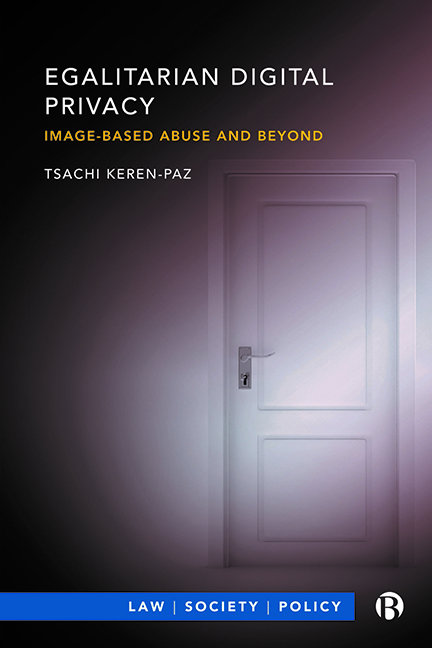Book contents
- Frontmatter
- Dedication
- Contents
- Acknowledgements
- Series Editor’s Preface
- 1 Introduction
- 2 Setting the Ground: The Intermediary Liability Debate and Framing Issues
- 3 First Principles and Occupiers’ Liability: The Case against Immunity
- 4 Property and Privacy: The Case for Strict Liability
- 5 Property and Privacy: Objections and Possible Extensions
- 6 The Policy Debate: Uniqueness of Harm from NCII
- 7 The Policy Debate: Freedom of Expression and Financial Costs of Filtering
- 8 The Easy Case for Viewers’ Liability: Child Pornography and Apportionment of Liability
- 9 Viewers’ Liability: Intention and Objective Fault
- 10 The Power of Property: Strict Liability for Viewing NCII
- 11 Scope of Liability for Breaches of Privacy
- 12 Is Suing Viewers Practicable?
- 13 Conclusion
- References
- Index
2 - Setting the Ground: The Intermediary Liability Debate and Framing Issues
Published online by Cambridge University Press: 17 January 2024
- Frontmatter
- Dedication
- Contents
- Acknowledgements
- Series Editor’s Preface
- 1 Introduction
- 2 Setting the Ground: The Intermediary Liability Debate and Framing Issues
- 3 First Principles and Occupiers’ Liability: The Case against Immunity
- 4 Property and Privacy: The Case for Strict Liability
- 5 Property and Privacy: Objections and Possible Extensions
- 6 The Policy Debate: Uniqueness of Harm from NCII
- 7 The Policy Debate: Freedom of Expression and Financial Costs of Filtering
- 8 The Easy Case for Viewers’ Liability: Child Pornography and Apportionment of Liability
- 9 Viewers’ Liability: Intention and Objective Fault
- 10 The Power of Property: Strict Liability for Viewing NCII
- 11 Scope of Liability for Breaches of Privacy
- 12 Is Suing Viewers Practicable?
- 13 Conclusion
- References
- Index
Summary
Introduction
In this short chapter I set the ground for the argument developed in the next three chapters. Part 2 will introduce the main liability regimes governing internet intermediaries; Part 3 will examine how control and fairness shape the current scope of intermediaries liability in different jurisdictions; Part 4 will situate my argument within existing literature.
A primer of intermediary liability
Hosts’ and platforms’ liability for user-generated content is a contested topic. Hosts are internet intermediaries hosting content created by third parties. They include platforms such as Facebook and Twitter that are usually major social media actors. The two main approaches to the topic are a safe harbour providing the intermediary with immunity subject to an NTD requirement; and complete immunity, allowing intermediaries to self-regulate whether they remove and monitor content. The European safe harbour model is enshrined in the ECD and adopts a horizontal approach: the same NTD model applies to the host’s liability regardless of the cause of action, whether it is intellectual property, defamation, breach of privacy or any other tort or criminal offence.
The following caveats and clarifications apply: first, hosts (including platforms) are just one type of internet intermediary. The NTD regime applies to hosts in Article 14 of the ECD but not to intermediaries transmitting data (mere conduits, such as internet service providers) and those providing temporary caching services. Second, Article 14 distinguishes between criminal responsibility and civil liability. Criminal responsibility requires actual notice and failure to act expeditiously thereafter. For civil liability it suffices to not be ‘aware of facts or circumstances from which the illegal activity or information is apparent’ (often referred to as constructive knowledge); but such awareness does not extend to negligent ignorance (Larusdottir, 2010: 484; Riordan, 2016: 403). However, the extent to which platforms that curate and promote user content can enjoy safe harbour, or rather are considered as the creators or publishers of the offending content, is litigated in the Court of Justice of the European Union (CJEU), ECtHR and domestic courts with a general trajectory of increased responsibility for user content.
- Type
- Chapter
- Information
- Egalitarian Digital PrivacyImage-based Abuse and Beyond, pp. 13 - 27Publisher: Bristol University PressPrint publication year: 2023



